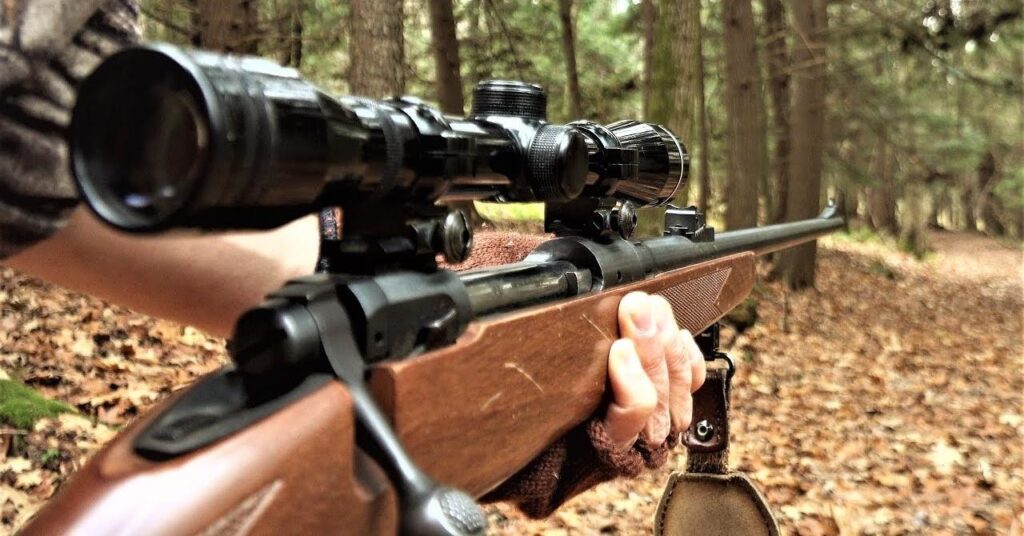Welcome to the world of hunting!
You are in the right place if you’re gearing up for your first season. This checklist is designed to guide beginners like you through the exciting journey ahead. We understand that starting something new can be daunting, but don’t worry. We’re here to help you step into the great outdoors with confidence.
In this guide, you’ll find everything you need to get started, from selecting the best ammo for deer hunters to the essential gear and the finer points of field tactics and ethical hunting practices.
Whether it’s understanding what to pack and prepare or the best ways to respect wildlife and nature, we have covered all the bases.
So, let’s dive in and set you up for a successful and memorable first hunting season.
Gearing Up for the Great Outdoors
Embarking on a hunting journey requires more than just enthusiasm; it demands thorough preparation. The right gear, permits, and knowledge are crucial. Let’s break down what you need to gear up effectively for your outdoor adventure.
Licenses and Permits
Before you set foot in the wilderness, it’s essential to understand and comply with state regulations. Acquiring the right licenses for your target species is the first step. This process often involves navigating online applications and understanding the specific requirements of your hunting area.
Pay attention to additional details like tags, stamps, and securing permissions from landowners if you’re venturing onto private property. These steps are not just legal formalities but part of being a responsible and ethical hunter.
Essential Gear
Your gear can make or break your hunting experience. Start with the basics: clothing that blends into the environment (camouflage) and keeps you comfortable in various weather conditions. Footwear is equally essential for those long treks.
Ensure that firearms and ammunition comply with legal standards and suit your target species. Sighting adjustments should be made beforehand. Consider carrying binoculars, a rangefinder, and a GPS device to aid in your hunt. Safety is paramount, so remember ear and eye protection and a well-stocked first-aid kit.
Comfort and Convenience
A well-organized backpack is your best companion in the field. Choose one that’s spacious enough for essentials but is manageable.
Include items like knives and multi-tools for versatility. Managing your food and water intake is vital; opt for nutritious, easy-to-carry food and effective hydration strategies. Lastly, consider using callers and decoys. When used responsibly, these tools can significantly enhance your chances of a successful hunt by attracting suitable species.
Mastering the Field: Pre-Hunt Strategies
Success in hunting is often determined long before you step into the field. It’s about preparation, knowledge, and practice. Let’s explore the key strategies to master before your hunt.
Scouting and Research
Your first task is to understand your target species.
What are their habits? Where do they live? What sounds do they make?
This knowledge is crucial. Use maps, aerial imagery, and online resources to identify potential hunting spots. These tools can reveal hidden trails, water sources, and feeding areas. If possible, seek advice from seasoned hunters or local guides. Their insights can be invaluable, offering you a head start in your hunting journey.
Planning and Preparation
Next, turn your attention to planning. Check the weather forecasts regularly and familiarize yourself with the terrain you’ll navigate. This knowledge helps in choosing the right gear and avoiding surprises.
Pack your equipment thoughtfully. Every item in your backpack should have a purpose. Remember, ethical hunting practices are as important as your equipment. Understand the rules, respect the wildlife, and know what constitutes a fair and legal hunt.
Practice Makes Perfect
Spend time at the shooting range to improve your accuracy and confidence with your firearm, using the best ammo for deer hunters. There are specific ammunition designed to enhance your hunting experience, ensuring efficiency and ethical hunting practices. However, shooting is just one skill.
Learn basic outdoor survival skills, like knot tying, which can be helpful in the field. Also, get comfortable with maintaining your firearm. Regular cleaning and maintenance ensure its reliability and safety.
Taking Aim: In the Field Tactics
In the field, your tactics and approach can make all the difference. Here, we focus on the essential tactics that ensure a successful hunt and a safe and ethical one.
Safety First
Safety is paramount when handling firearms. Treat every gun as if it is loaded. Be mindful of where your gun is pointed at all times. Know your target and what’s beyond it. Keep your finger off the trigger until you’re ready to shoot.
These are the four cardinal gun safety rules. Equally important is being aware of your surroundings and the other hunters in the area. A safe hunt is a successful hunt.
Tracking and Stalking
Understanding animal behavior is crucial. Look for tracks, droppings, or signs of feeding. These clues tell you where the animal has been and where it might go. When moving, be as quiet as possible.
Be mindful of the direction of the wind; animals can pick up your scent easily. Approach your target with care and patience. Remember, ethical hunting means respecting the animal and its habitat.
The Moment of Truth
When it’s time to take your shot, stay calm. Your patience and composure are your greatest assets. Aim for a clean, ethical kill. This means understanding the anatomy of your target and aiming for a shot that will be quick and humane.
After the shot, show respect for the animal. Practice responsible game care, which includes proper field dressing and ensuring the animal’s meat and other parts are used respectfully and legally.
Beyond the Hunt: Knowledge and Stewardship
Hunting is more than just a pursuit. It’s a responsibility. As hunters, we play a crucial role in conservation and continuous learning. This section delves into how we can contribute positively to the environment and grow in our hunting journey.
Conservation and Sustainability
Hunters are key players in wildlife management. By following regulations and bag limits, we help maintain healthy animal populations. However, our role continues.
Participate in conservation efforts. Support initiatives that promote ethical hunting practices. Advocate for responsible land use and the protection of natural habitats. These actions ensure that the wilderness thrives for future generations of hunters and wildlife enthusiasts.
Continuous Learning
Learning never stops in the world of hunting. Read more about hunting magazines and blogs to stay updated on the latest techniques and trends. Attend workshops and seminars. These are great ways to learn and connect with the hunting community.
Don’t hesitate to seek mentorship from experienced hunters or guides. Their knowledge and insights can be invaluable. Remember, every hunting trip, conversation, and piece of literature is an opportunity to refine your skills and understanding of this rich and rewarding practice.
Acknowledging The Ethical Landscape of Hunting
Embarking on a hunting journey is about more than just skill and preparation. It’s also about understanding and embracing the ethical responsibilities that come with it.
This section explores the crucial aspects of ethical hunting, ensuring that you enjoy the sport and contribute positively to the natural world.
Respect for Wildlife
Central to ethical hunting is the respect for wildlife. This means engaging in sustainable hunting practices that support the conservation of wildlife populations.
It’s about balancing our role as hunters with our duty to maintain ecological harmony. This involves adhering to bag limits, hunting only in designated seasons, and choosing methods that do not cause unnecessary suffering to animals.
Land Ethics
As hunters, we have a responsibility for the land we use. This includes respecting property boundaries and practicing ‘leave no trace’ principles. Maintaining the integrity of natural habitats is essential, ensuring that our hunting activities do not lead to environmental degradation.
This respect extends to not disturbing non-target wildlife and their habitats preserving the wilderness for future generations.
Fair Chase Principles
Fair chase is a concept that lies at the heart of ethical hunting. It’s about pursuing a game that does not give the hunter an unfair advantage.
This principle encourages sportsmanlike conduct, ensuring the hunt is challenging yet respectful to the animal. It involves avoiding practices like canned hunting or technology that make the hunt too easy and lacking the skill and respect that hunting demands.
Seal Your First Hunt
As you step into the hunting world, this guide aims to provide you with a solid foundation. It’s a journey that combines preparation, respect for nature, and an ongoing thirst for knowledge.
This includes choosing the best ammo for deer hunters ensuring you’re well-equipped for a responsible and enriching experience. Hunting is more than just a pursuit; it’s a commitment to steward the natural world and a pathway to personal growth.
Cherish each moment in the wilderness, from the serene waits to the exhilarating chases. Keep your curiosity alive, respect the environment, and prioritize responsible hunting. Your first season is not just an adventure; it’s the start of a lifelong journey of learning and unforgettable experiences.
Step forward with confidence and responsibility.
Happy hunting!






